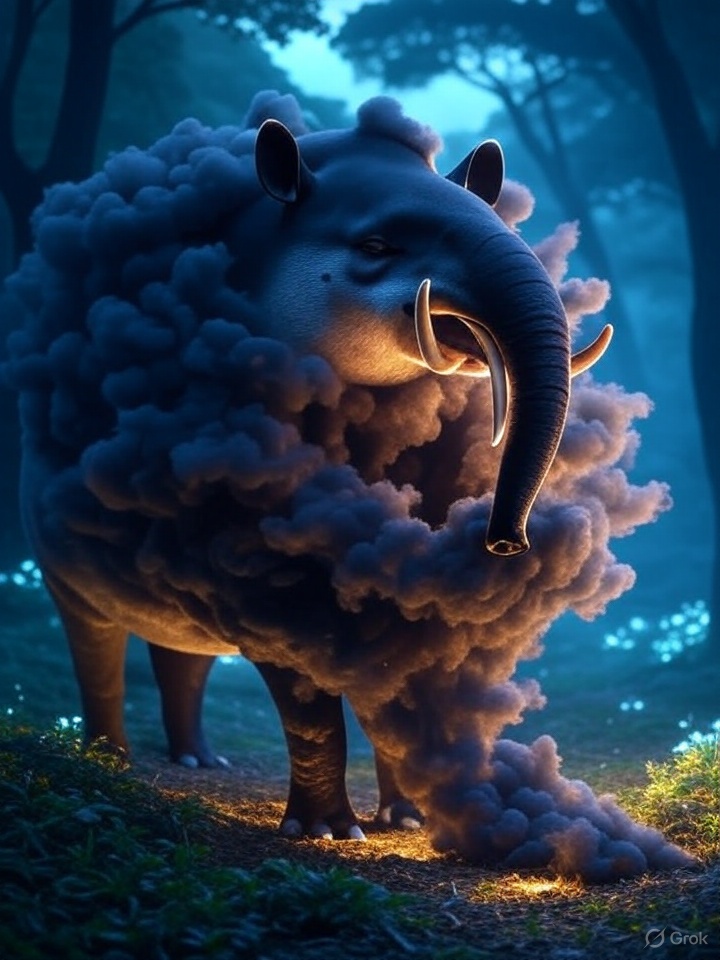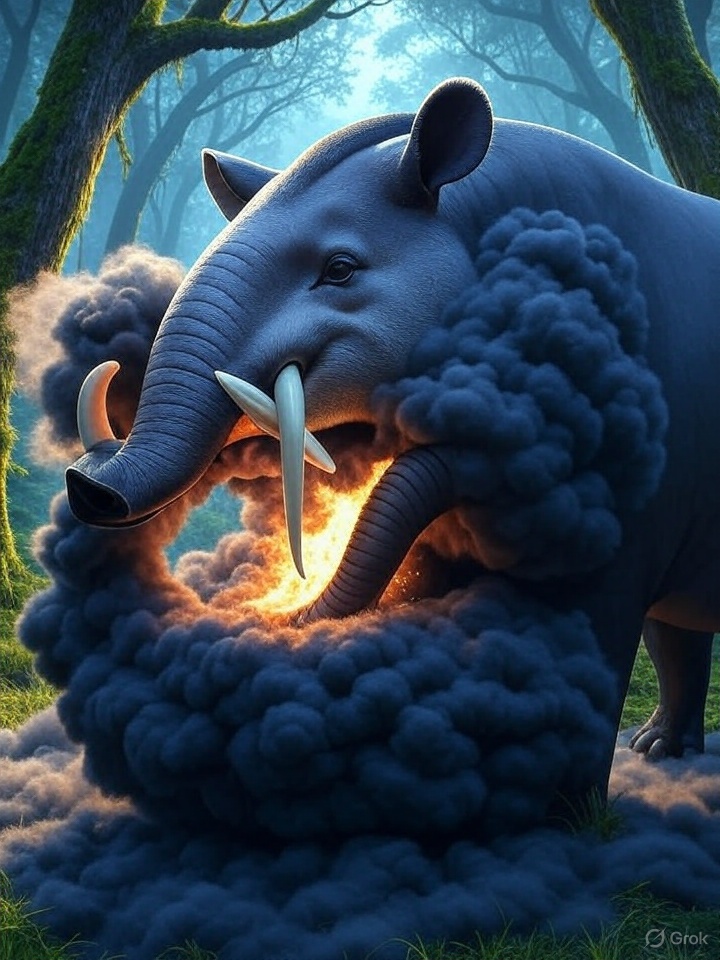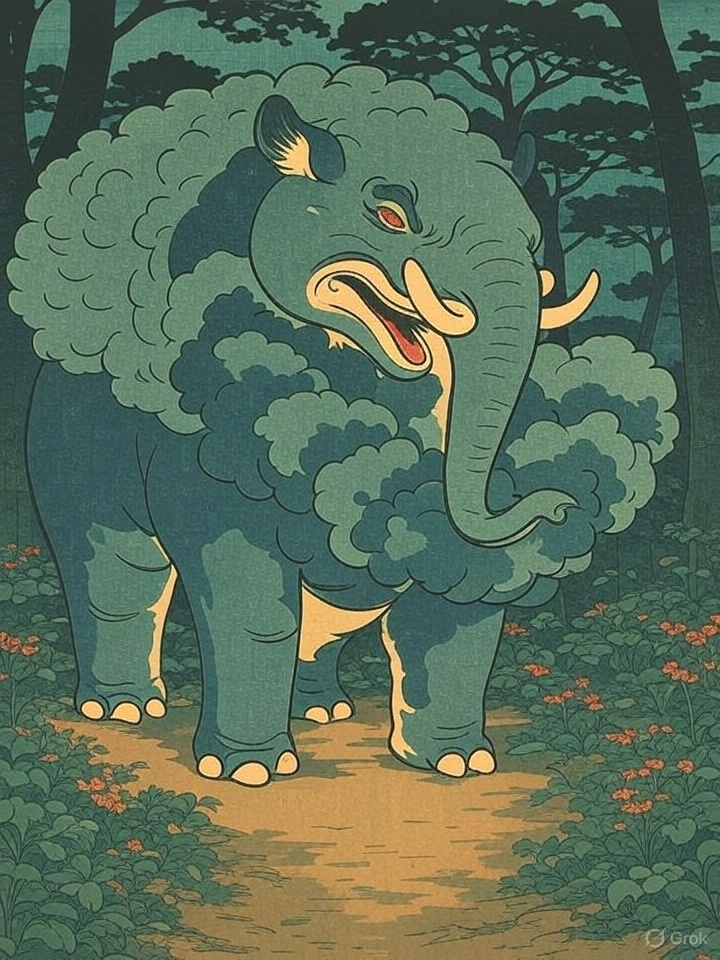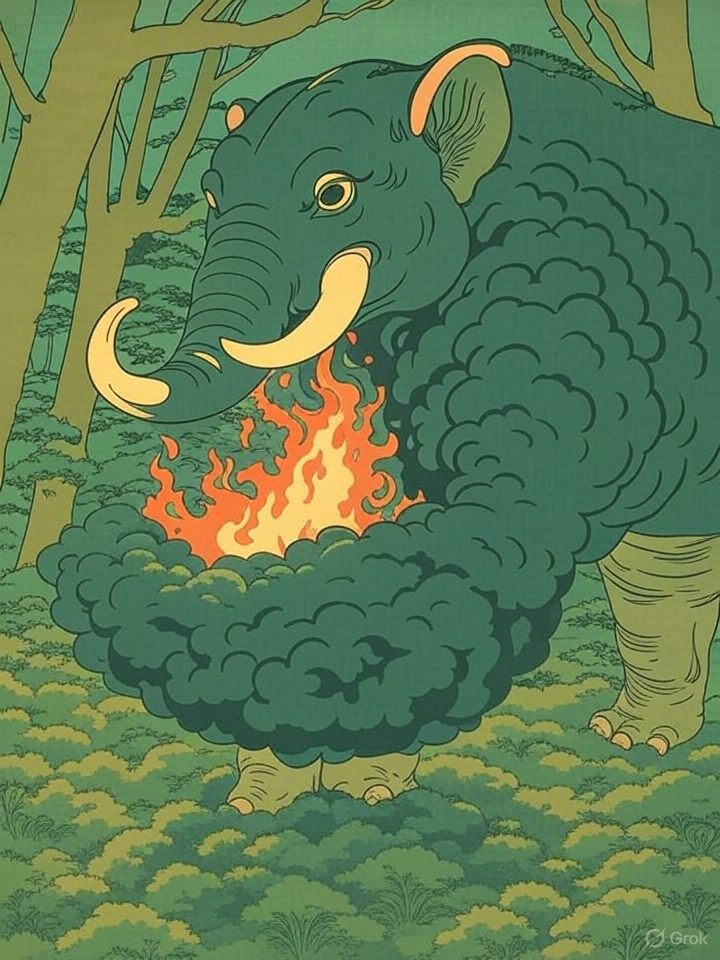Name Meaning
Overview
Baku (獏) is a supernatural being in Japanese folklore known to devour bad dreams and protect sleepers from nightmares. The concept is believed to originate from ancient Chinese legends and has deep roots in Japanese spiritual practices.
- Baku = dream-eater or tapir-like mythological creature
Origin
- Derived from Chinese mythology and later integrated into Japanese folklore.
- Mentioned in Edo period texts and represented in charms and talismans.
- Often depicted in traditional art and children’s bedtime customs.
Appearance
- Described as a chimera-like beast with the body of a bear, the trunk of an elephant, the eyes of a rhinoceros, the tail of an ox, and the legs of a tiger.
- Often has a gentle, protective demeanor despite its fearsome appearance.
Behavior & Myths
- Summoned by reciting “Baku, come eat my dream” after a nightmare.
- Consuming too many dreams may cause the Baku to devour the dreamer’s hopes and aspirations.
- Carvings and illustrations of Baku are often placed near beds as talismans.
Symbolism
- Symbol of protection, spiritual cleansing, and relief from anxiety.
- Represents a balance between fear and comfort in Japanese dream mythology.
- Popular in children’s folklore and bedtime rituals for comfort and safety.



